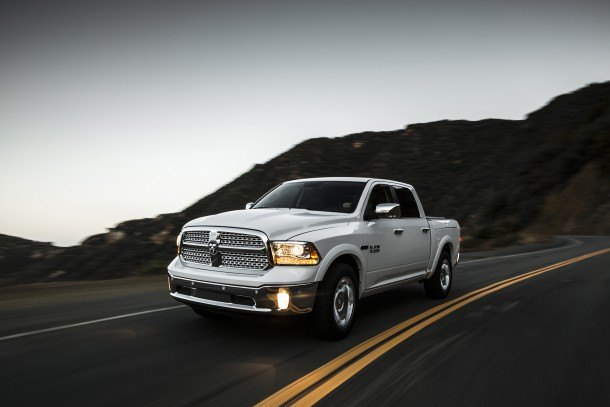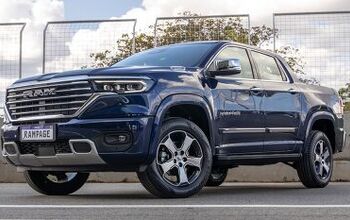Fiat Chrysler Loosens Engineers' Leashes to Speed Up Ram Development

The next-generation Ram 1500, due to appear as a 2019 model, can’t afford any delays or Dodge Dart-like launch failures if it wants to challenge perennial front-runner Ford in the full-size pickup battle.
To ensure it doesn’t spend too much time in the womb, Fiat Chrysler Automobiles has taken the unlikely step of allowing some of its engineers to make their own decisions, Automotive News reports.
Clearly, when the success of one of its biggest revenue generators is at stake, the automaker is willing to kick tradition to the curb.
The report states that a number of FCA engineers working on the next-generation Ram have been given authority to make snap decisions in the interest of timeliness. Otherwise, they’d face the status quo — a bureaucratic process where decisions, handed down from the top of the food chain, could take months.
According to Automotive News, a delay in the production of Ram prototypes from October 2017 to January 2018 is the reason for the change. Production Ram 1500s are expected to start rolling down the assembly line on January 28, 2018. There’s little to no room for delays.
FCA’s change in approach has reportedly left its suppliers pleased. In the past, suppliers slammed the automaker for its dithering, which led to a loss of time and money.
The next-generation Ram is an especially sensitive product, as more than just the vehicle needs to come together on time. Production will move from FCA’s Warren assembly plant to Sterling Heights, and the facility needs an extensive, $1.5 billion retooling after the unloved Chrysler 200 is sent packing at the end of this year.
Unlike Ford, Ram plans to stick with traditional all-steel construction for its new pickup. Because of this, the automaker can’t count on any fuel economy gains through weight savings. On that front, FCA plans to add direct injection to its 3.6-liter Pentastar V6, as well as optional turbocharging. A long-discussed belt starter generator start-stop system, where the alternator acts as the vehicle’s starter, is expected to reach production in the Ram, cutting down on its thirst.
[Image: Fiat Chrysler Automobiles]

More by Steph Willems
Latest Car Reviews
Read moreLatest Product Reviews
Read moreRecent Comments
- Probert They already have hybrids, but these won't ever be them as they are built on the modular E-GMP skateboard.
- Justin You guys still looking for that sportbak? I just saw one on the Facebook marketplace in Arizona
- 28-Cars-Later I cannot remember what happens now, but there are whiteblocks in this period which develop a "tick" like sound which indicates they are toast (maybe head gasket?). Ten or so years ago I looked at an '03 or '04 S60 (I forget why) and I brought my Volvo indy along to tell me if it was worth my time - it ticked and that's when I learned this. This XC90 is probably worth about $300 as it sits, not kidding, and it will cost you conservatively $2500 for an engine swap (all the ones I see on car-part.com have north of 130K miles starting at $1,100 and that's not including freight to a shop, shop labor, other internals to do such as timing belt while engine out etc).
- 28-Cars-Later Ford reported it lost $132,000 for each of its 10,000 electric vehicles sold in the first quarter of 2024, according to CNN. The sales were down 20 percent from the first quarter of 2023 and would “drag down earnings for the company overall.”The losses include “hundreds of millions being spent on research and development of the next generation of EVs for Ford. Those investments are years away from paying off.” [if they ever are recouped] Ford is the only major carmaker breaking out EV numbers by themselves. But other marques likely suffer similar losses. https://www.zerohedge.com/political/fords-120000-loss-vehicle-shows-california-ev-goals-are-impossible Given these facts, how did Tesla ever produce anything in volume let alone profit?
- AZFelix Let's forego all of this dilly-dallying with autonomous cars and cut right to the chase and the only real solution.


































Comments
Join the conversation
Because what FCA needs is less engineering and quality control oversight
If the organization cannot review important matters in a reasonable time, fix the goddamn organization! I don't know if there are too many levels, too many competing agendas, or a broken process, but the fact that nobody is addressing the root cause is the real lede here and it's utterly pathetic.